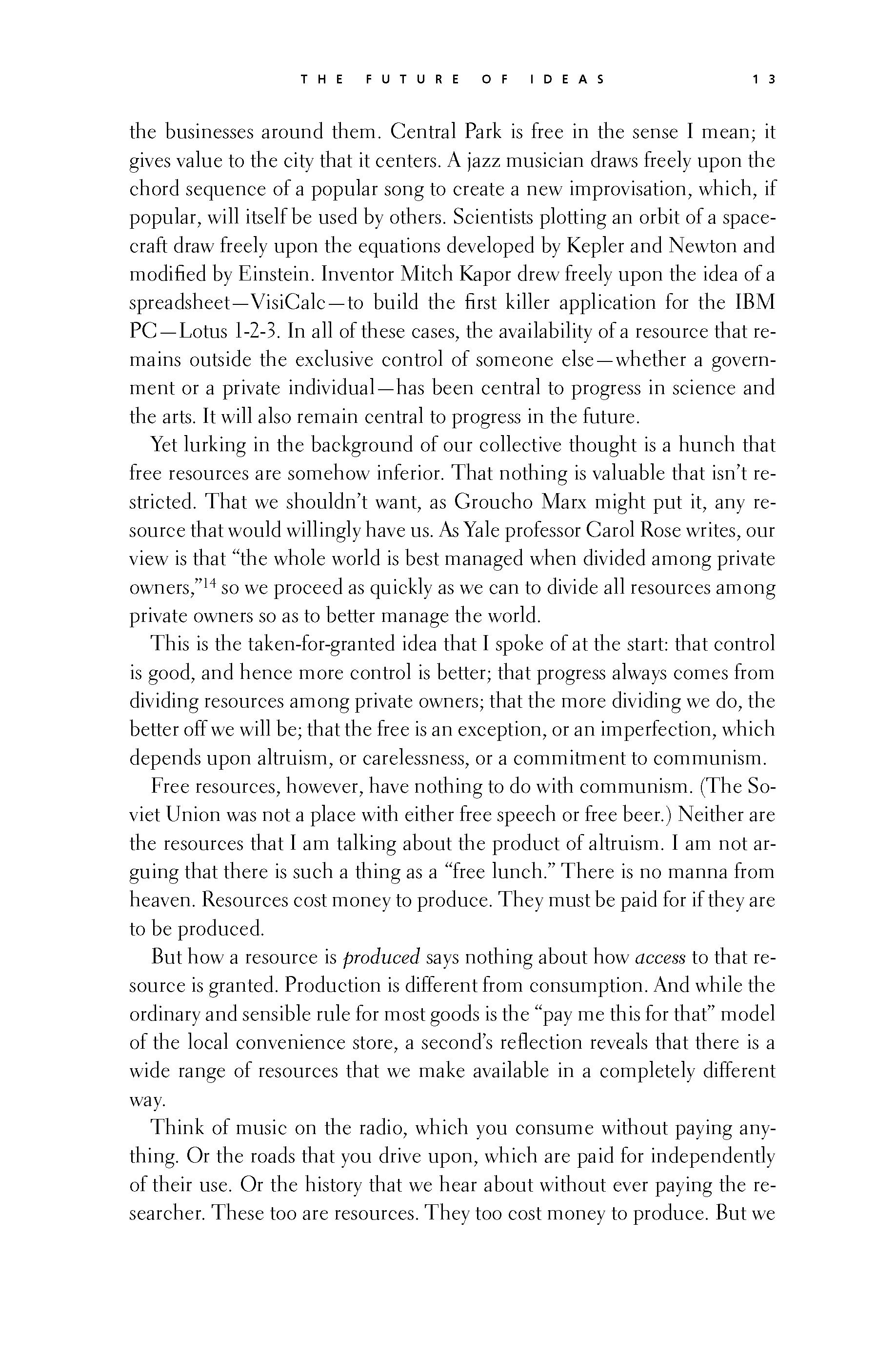 p012 _
-chap- _
toc-1 _
p013w _
toc-2 _
+chap+ _
p014
p012 _
-chap- _
toc-1 _
p013w _
toc-2 _
+chap+ _
p014
the businesses around them. Central Park is free in the sense I mean; it
gives value to the city that it centers. A jazz musician draws freely upon the
chord sequence of a popular song to create a new improvisation, which, if
popular, will itself be used by others. Scientists plotting an orbit of a space-
craft draw freely upon the equations developed by Kepler and Newton and
modified by Einstein. Inventor Mitch Kapor drew freely upon the idea of a
spreadsheet -- VisiCalc -- to build the first killer application for the IBM
PC -- Lotus 1-2-3. In all of these cases, the availability of a resource that re-
mains outside the exclusive control of someone else -- whether a govern-
ment or a private individual -- has been central to progress in science and
the arts. It will also remain central to progress in the future.
Yet lurking in the background of our collective thought is a hunch that
free resources are somehow inferior. That nothing is valuable that isn't re-
stricted. That we shouldn't want, as Groucho Marx might put it, any re-
source that would willingly have us. As Yale professor Carol Rose writes, our
view is that "the whole world is best managed when divided among private
owners,"[1-14] so we proceed as quickly as we can to divide all resources among
private owners so as to better manage the world.
This is the taken-for-granted idea that I spoke of at the start: that control
is good, and hence more control is better; that progress always comes from
dividing resources among private owners; that the more dividing we do, the
better off we will be; that the free is an exception, or an imperfection, which
depends upon altruism, or carelessness, or a commitment to communism.
Free resources, however, have nothing to do with communism. (The So-
viet Union was not a place with either free speech or free beer.) Neither are
the resources that I am talking about the product of altruism. I am not ar-
guing that there is such a thing as a "free lunch." There is no manna from
heaven. Resources cost money to produce. They must be paid for if they are
to be produced.
But how a resource is _produced_ says nothing about how _access_ to that re-
source is granted. Production is different from consumption. And while the
ordinary and sensible rule for most goods is the "pay me this for that" model
of the local convenience store, a second's reflection reveals that there is a
wide range of resources that we make available in a completely different
way.
Think of music on the radio, which you consume without paying any-
thing. Or the roads that you drive upon, which are paid for independently
of their use. Or the history that we hear about without ever paying the re-
searcher. These too are resources. They too cost money to produce. But we
[[13]]
p012 _
-chap- _
toc-1 _
p013w _
toc-2 _
+chap+ _
p014